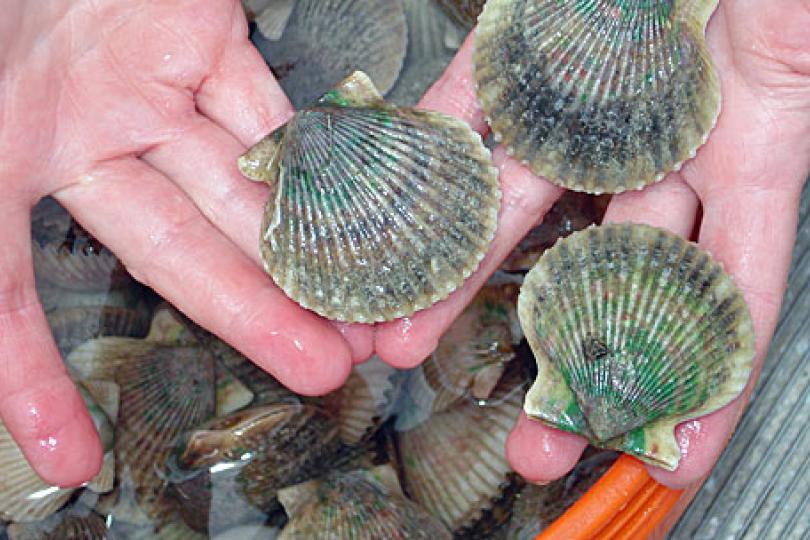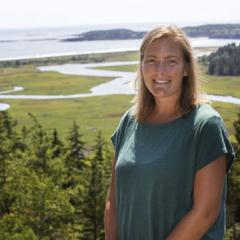Grant takes Cleaver to Ireland for conference on scallops
From April 23rd through April 28th, 2015, I attended and presented at the 20th International Pectinid Workshop in Galway, Ireland with support from the Switzer Foundation Professional Development Grants program. From a professional development perspective, this workshop provided me with my first opportunity to give a presentation in front of a scientific audience beyond my thesis defense in graduate school. I provided preliminary results from quantifying the effect of the Muscle Ridge Closed Area on scallop populations inside and outside of the small-scale closure. In addition, I was paired with a more senior scientist to co-chair the special session on Marine Protected Areas.
I also had the opportunity to network with researchers doing similar work and exchange ideas to improve the power of my collaborative project with scallop industry members in Maine. Conversations at the workshop prompted my scallop project research assistant and I to visit the Northeast Fisheries Science Center to learn their methods for analyzing scallop shells in June 2015. We plan to apply their method to our samples this summer. In addition, I hope to add a tagging component to the project to understand how scallops are moving in and around the closed area. Little is known about Placopecten magellanicus movement patterns and this relatively low cost method will test the hypothesis raised by one individual during my presentation who believed that scallops may be moving through the small-scale closed area because it is a narrow closure.
More broadly, the conference provided the small delegation from Maine who attended a chance to brainstorm and discuss improved management strategies and ways to collect data for the Maine scallop fishery and network with scientists involved in managing the Federal scallop fishery. Trisha Cheney, the scallop resource manager for the Maine Department of Marine Resources hopes to create a research subcommittee of the state Scallop Advisory Council, which is the co-management body of the scallop fishery. I plan to follow up with Trisha to offer my time in participating on that subcommittee.
Scientists studying scallops from all over the world participated in the workshop. The overarching theme of the workshop was “Scallops in the Changing World.” One of the two special sessions explored Pectinids as witnesses of a changing ocean. This session featured work by French scientists who are developing analytical tools that use the scallop shells as indicators of physical and chemical parameters over time. Scallop shells capture certain aspects of the environment each time a new growth ring is formed. They have yet to determine a similar analytical method for the shell of the Placopecten magellanicus, the species found in Maine, but when they do, we hope to send them samples from the Muscle Ridge and Ocean Point closed areas to analyze the results. Additional session topics included marine protected areas, biochemistry, physiology, and genetics as well as scallop aquaculture – both early life stages and on-growing, fisheries, ecology and general biology, and resource management.

